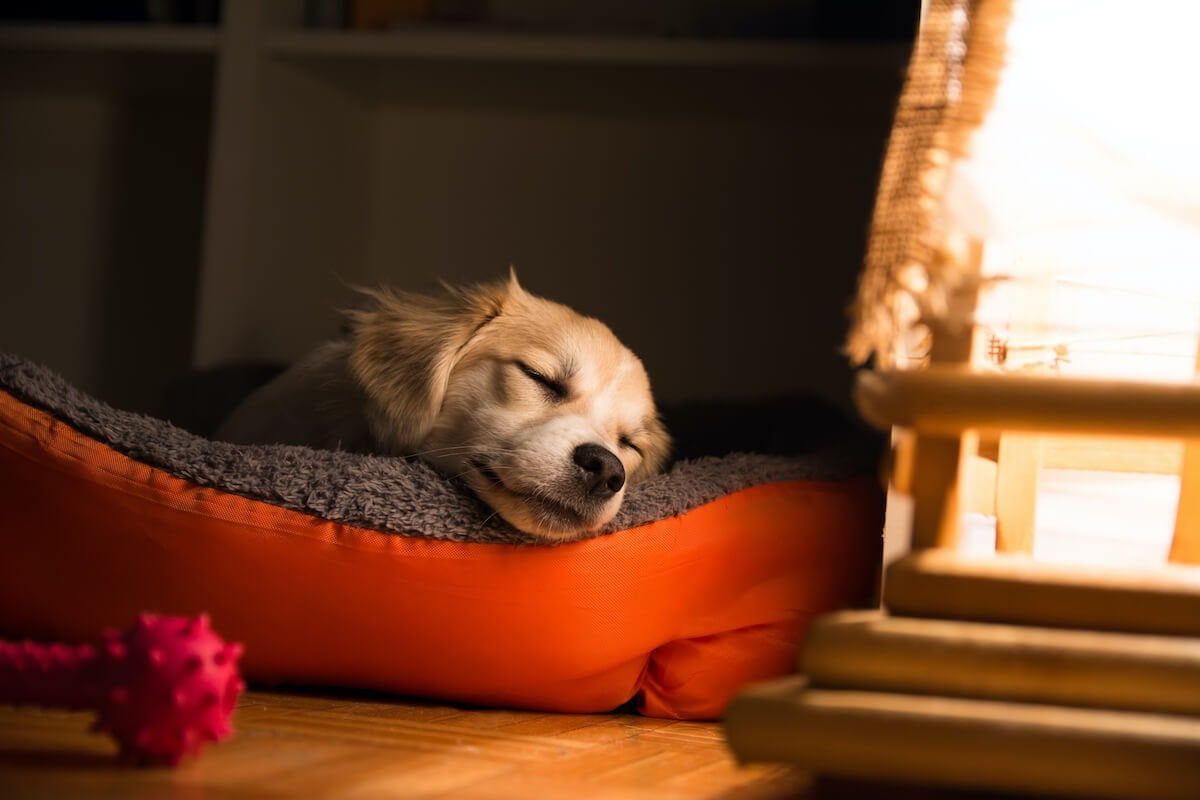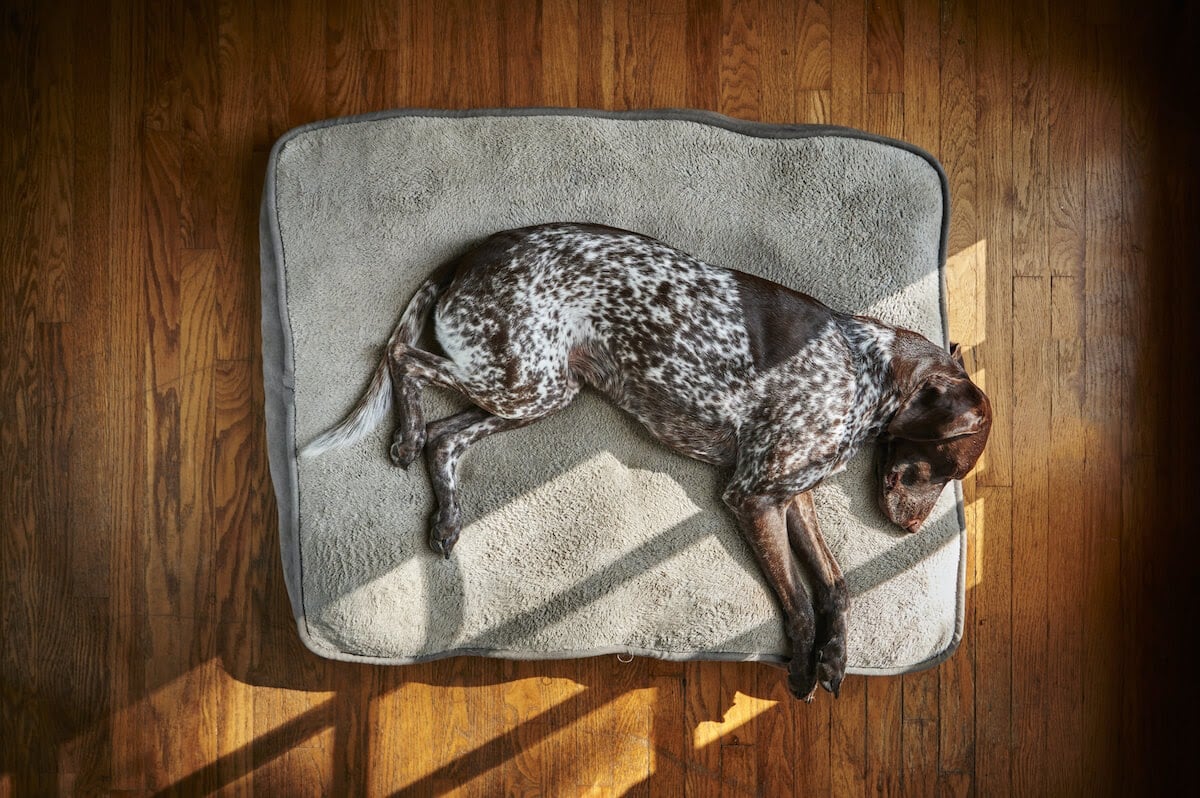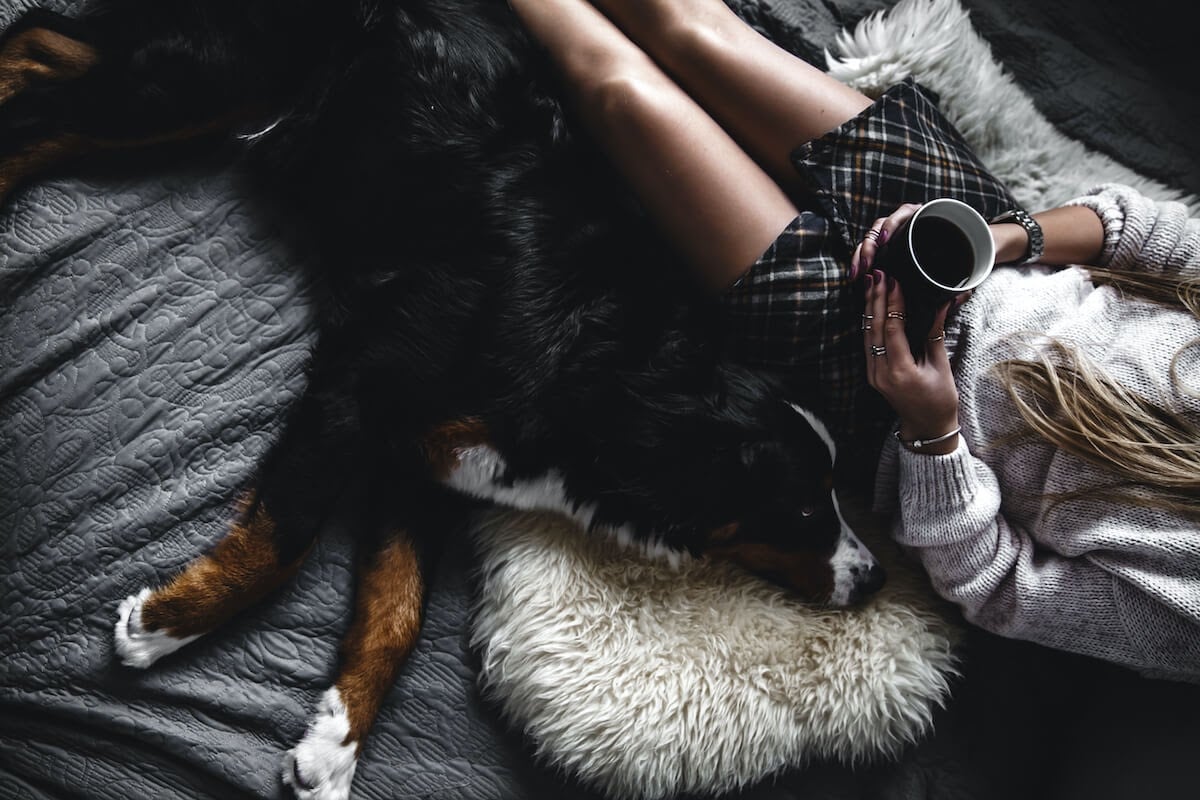Is your canine friend struggling to settle down at night? Is your dog anxious when it comes to bed time?
This is not an unusual problem, particularly as your dog gets older, but there can be other reasons too. Here are 5 reasons for doggy night nerves, and some tips to help your dog settle and have a better night.
1. HEALTH ISSUES
Has your dog’s behaviour changed - has their character changed, are they eating or drinking less, or are they pacing around or in pain?
How to help
It can be difficult to recognize anxiety in your pet so if you’re unsure what could be causing your doggo night nerves, it is always best to have them checked out by a vet to see if there are any underlying medical issues that might be making them anxious at night. Once you rule out any medical issues, you can assess whether any other changes could be made to their routine to help them settle.
2. LONELINESS
If your dog is still a puppy, they may be missing their doggy parents and their littermates so they need to learn to be on their own sometimes, particularly overnight. The same applies to a pooch that may be a little older, for example if they are a rescue dog.
How to help
It’s important to develop a bedtime routine for your puppy as soon as they arrive in their new home. Make sure they have their own bed, maybe with an old tee-shirt that has their canine mummy’s scent on it; this will help them feel more secure. Take them for a walk before bedtime and make sure they have a toilet break before they settle down. Routine is key. Read our 10 Top Tips to calm your new puppy for more advice.
An older rescue dog may have had other dogs around them while in their rescue home so may be feeling lonely now they are in a new home. It can take a few weeks for a rescue dog to settle into new surroundings, so be patient and establish a routine straight away with lots of love and attention. Give them a comfy bed with their own toys and treats and, as with a puppy, teach them gradually to get used to being alone.
 3. ANXIETY
3. ANXIETY
A number of things can make your pooch anxious. Consider if there has been a change in your household - is there a new baby on the block? Have you left them home alone more than usual? Are there unexplained loud noises around? Or it could be something simple in your home like a water tank making noises in the middle of the night that is spooking your pooch and making them pace throughout the night. Have you moved to a new home recently? An experience that they are not familiar with can make your dog more anxious and lead to night nerves.
How to help
Identify the source of the problem if possible and take action to correct it or help your pooch to accept it.
If you have a new human bundle of joy in your home, it’s important you prepare your dog for new smells and noises before the baby arrives to avoid your dog being anxious. A baby crying at night may make them feel uneasy and anxious. They may even feel a little jealous that they are not getting the same attention as they used to - so make sure you keep to their routine and continue to reassure them if they wake at night too.
If your work routine has changed and your pooch is left on their own for longer periods of time, they may be feeling confused and anxious because you are not around as much as you have been and this anxiety can extend into the night time. The recent COVID 19 lockdown may have had an adverse effect on your pooch. They will have got used to having your company every day, but now you’re not around as much… they are confused!
Establishing a routine will help your pooch adapt to the unpredictable events that occur in a human’s life.

4. NOT ENOUGH EXERCISE
One thing that most dogs have in common is that they like ‘walkies’! Some breeds of dogs need more exercise than others but a good walk will help dogs keep in good shape both physically and mentally. If they are not getting enough exercise, they could become restless, and they may gain weight which, in turn, can lead to joint problems, excess barking, changes to their social skills - all of which can lead to sleepless nights.
How to help
Establish a good routine to ensure that your canine friend gets the appropriate amount of exercise - as well as regular walks, this could include playing fetch with a ball or frisbee, tug-o-war with a rope, or mental stimulation by giving them a food puzzle to play with. You may find that socializing and playing chase with other dogs on an early evening walk will be enough to make them sleep peacefully through the night! Tiring your doggo out can help them get some decent shut-eye!
 5. GETTING OLDER
5. GETTING OLDER
Just like humans, there are many physiological changes that happen to a dog as it gets older. They can put on weight, their eyesight can suffer, they may get arthritic joints and they may want to sleep more during the day. Having painful joints may make it less comfortable for them to sleep in the same position at night, so they may start wandering around the house in an effort to try and get comfortable.
How to help
Shorter and more frequent walks will help control their weight and you may find that you have to keep them on a lead to help them feel more secure, particularly if their eyesight is fading. A short walk just before bedtime may help them settle more. If they are having joint problems, it’s important they are assessed by a vet who will advise you how to manage the pain and make adjustments to help your dog feel more comfortable.
HOW TO HELP YOUR DOG SETTLE
In addition to making sure your dog is comfortable, getting enough exercise and is mentally stimulated, using ADAPTIL Calm Home Diffuser can help your dog stay calm, adapt at home, and settle at night. ADAPTIL is clinically proven, veterinary used and recommended and will provide constant comfort for your dog during the day and overnight.
 3. ANXIETY
3. ANXIETY
 5. GETTING OLDER
5. GETTING OLDER